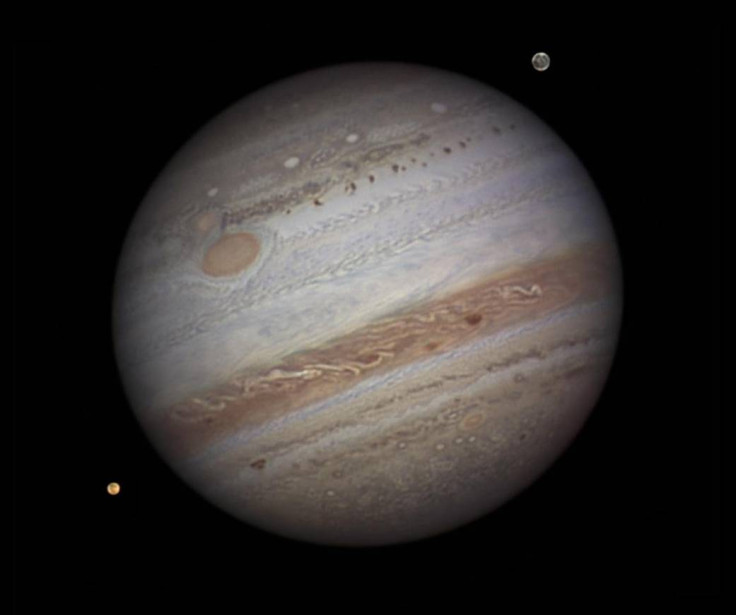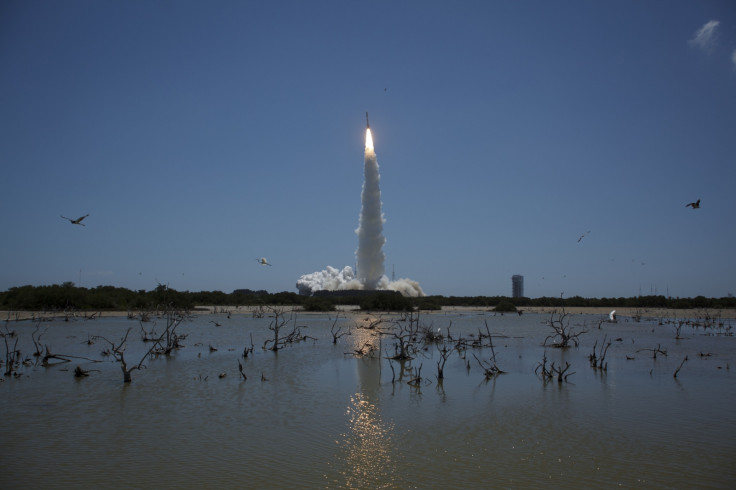Juno mission Q&A: Howard Swartz unveils mysteries behind 'complex' Jupiter in CuriosityStream doc
Producer spoke to IBTimes UK about Arrow Media's relationship with Nasa and how Destination:Jupiter was made.
Monday 4 July saw a fair few things happen: Nigel Farage resigned as leader of the Ukip political party and Chris Evans stepped down as Top Gear host after just one series. But in universal news (quite literally) bigger things occurred, as the unmanned Juno spacecraft landed on Jupiter after blasting off from Cape Canaveral five years earlier.
Space fanatics will be pleased to know that factual SVOD service CuriosityStream has commissioned UK indie Arrow Media to develop a short-form factual documentary on the Nasa Juno Mission to Jupiter. After IBTimes UK spoke with the executive producer on the project, Howard Swartz, we can confirm that it sounds out of this world.
Arrow Media has enjoyed a long and successful relationship with Nasa, so the documentary packs in some quality interviews with the Juno mission's key scientists, including principal investigator, Scott Bolton. Footage from the Nasa archive and CGI produced by its Scientific Visualisation Studio will also be explored as the film unveils the full story behind the groundbreaking mission.
It will also reveal Jupiter's chemical fingerprint – the role in building our solar system – and the state-of-the-art technology on board the craft. The project marks Arrow Media's first short-form title for the digital portal.
Aiming to unlock the secrets of the solar system's largest and most mysterious planet, we asked Swartz – who also serves as executive vice president for Arrow – what the Juno Mission and the documentary expected to disclose. Read the full Q&A below.
Tell us about the biggest challenge you faced in making Desintation: Jupiter.
Juno is one of the most complex Nasa missions ever undertaken. It has taken five years just to get there. It's travelling at over 165 thousand miles an hour, and when it arrives, it will spend the next few years in one of the most hostile environments in the solar system. On board is some of the most sophisticated science instrumentation ever engineered that will hopefully unlock the biggest mysteries of a planet that is 4.5 billion years old. The most difficult challenge for us as storytellers was: how do you do tell a story this massive and complex and communicate it in such a way that is entertaining, informative and accessible to as broad an audience as possible?
What do you think are the biggest mysteries the Juno mission will reveal and aim to solve?
Jupiter is the oldest planet in the solar system but scientists know very little about how it formed or how it is structured. They hope Juno will shed light on this and at the same time tell us about the formation of our solar system. One of the most enduring questions here on Earth is how did Earth get its oceans. Understanding Jupiter's chemistry could help answer that question.
How did you work with Nasa to create the film?
We have worked with Nasa before and they are tremendous partners. They gave us access to the key scientists and engineers who are making the Juno mission a reality. They also allowed us to film in various locations that serve as the heart of the mission.

What was the most unexpected thing you learned about Jupiter during filming?
One of the most surprising things I learned about Jupiter is that it generates a magnetic field that runs from pole to pole much like Earth's. But the difference is that Jupiter's magnetosphere is actually the largest structure in the solar system and creates phenomenally bright auroras that are bigger than the Earth itself.
How has making this documentary been rewarding?
One of the most rewarding aspects of making a documentary like this is being able to share the work of some of the brightest people on the planet who are operating right at the edge of their technological capability... all in an effort to understand the universe, how it works and our place in it.
How long did it take you to make?
We started working on this project in January of this year. To work around the schedules of the key scientists who were busy with the day-to-day of the mission itself and trying to coordinate their schedules to be in the same place on the same day was challenging, but we managed to make the project in nearly six months.
Destination: Jupiter is the latest in the Destination series for CuriosityStream. It has enjoyed success from its previous documentaries Destination: Pluto and Destination: Mars.

© Copyright IBTimes 2024. All rights reserved.






